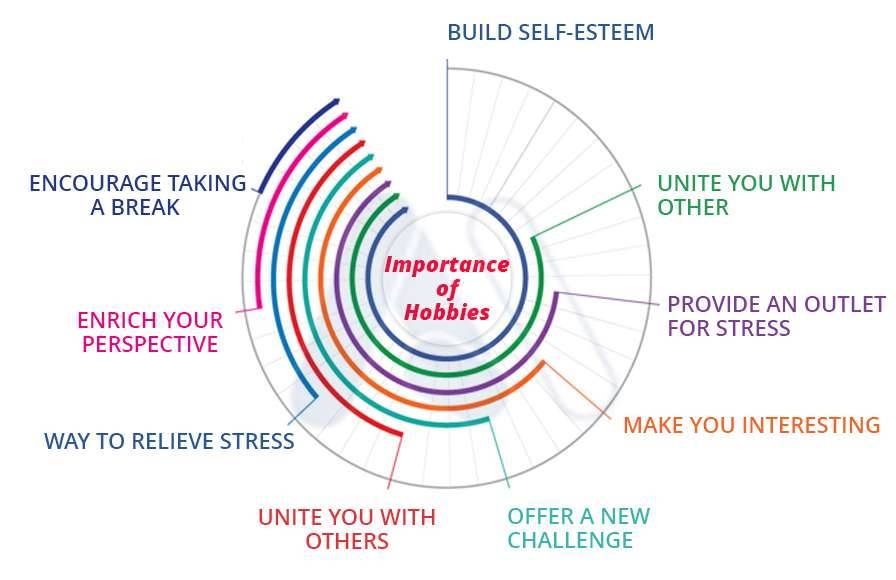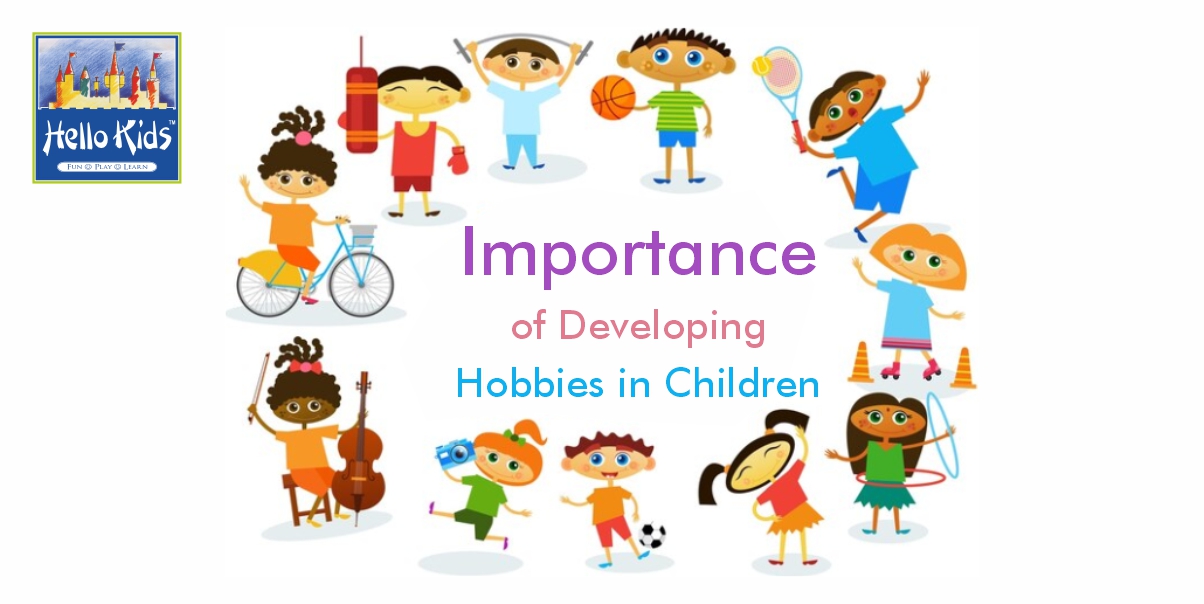The Benefits of Having Hobbies
Having hobbies is essential for maintaining a balanced and fulfilling life. Engaging in activities that we enjoy can have a positive impact on our mental, emotional, and physical well-being. Hobbies provide a creative outlet, reduce stress, and improve our overall quality of life. Whether it’s painting, gardening, playing sports, or cooking, hobbies allow us to relax and unwind while also stimulating our minds and bodies.
One of the key benefits of having hobbies is that they can help us manage stress and anxiety. Engaging in activities that we enjoy can provide a much-needed break from the pressures of daily life. Whether it’s spending time in nature, practicing mindfulness through yoga, or immersing ourselves in a creative project, hobbies can help us relax and recharge. This can have a ripple effect on our overall well-being, improving our mood, sleep quality, and overall mental health.

Furthermore, hobbies can also boost our creativity and problem-solving skills. Engaging in activities that require us to think outside the box and tap into our creative side can help us develop new perspectives and approaches to challenges. Whether it’s learning a new musical instrument, experimenting with new recipes, or taking up a new craft, hobbies can stimulate our brains and keep our minds sharp. This can be especially beneficial as we age, helping to maintain cognitive function and prevent cognitive decline.
In addition, hobbies can also provide a sense of accomplishment and purpose. Setting goals and working towards achieving them in our hobbies can boost our self-esteem and confidence. Whether it’s completing a painting, mastering a new skill, or achieving a personal best in a sport, hobbies can give us a sense of satisfaction and fulfillment. This can translate into other areas of our lives, helping us feel more motivated and empowered to tackle challenges and pursue our passions.
The Importance of Finding Time for Hobbies

In today’s fast-paced world, it can be easy to get caught up in work, family responsibilities, and other obligations, leaving little time for ourselves. However, making time for hobbies is crucial for our overall well-being. Finding time to engage in activities that we enjoy can help us recharge, relax, and reconnect with ourselves. Whether it’s setting aside a few hours each week or incorporating hobbies into our daily routine, finding time for hobbies is essential for maintaining a healthy work-life balance.
One of the main reasons why finding time for hobbies is important is that it allows us to prioritize self-care. Taking care of our mental, emotional, and physical health is essential for maintaining a healthy and happy life. Engaging in activities that bring us joy and fulfillment can help us reduce stress, improve our mood, and boost our overall well-being. By making time for hobbies, we can prioritize our own needs and make self-care a priority.

Moreover, finding time for hobbies can also help us cultivate a sense of identity and purpose. Engaging in activities that we enjoy can help us reconnect with our passions, interests, and values. Whether it’s rediscovering a childhood hobby or exploring a new interest, hobbies can help us define who we are and what brings us joy. This can be especially important during times of transition or change, helping us stay grounded and connected to ourselves.
Additionally, finding time for hobbies can also improve our relationships and social connections. Engaging in activities that we enjoy can help us meet like-minded individuals, build new friendships, and strengthen existing relationships. Whether it’s joining a book club, taking a cooking class, or participating in a sports team, hobbies can provide opportunities for socializing and networking. This can be especially beneficial for our mental health and well-being, helping us feel connected and supported by others.
How Hobbies Can Improve Mental Health

The connection between hobbies and mental health is strong, as engaging in activities that we enjoy can have a positive impact on our overall well-being. Hobbies can help reduce stress, anxiety, and depression, while also boosting our mood, self-esteem, and sense of purpose. Whether it’s painting, gardening, playing music, or practicing yoga, hobbies can provide a much-needed escape from the pressures of daily life and help us stay mentally healthy and resilient.
One of the key ways in which hobbies can improve mental health is by providing a sense of purpose and fulfillment. Engaging in activities that we enjoy can give us a sense of accomplishment and satisfaction, boosting our self-esteem and confidence. Whether it’s completing a challenging puzzle, finishing a knitting project, or mastering a new recipe, hobbies can help us feel productive and capable. This can be especially important for individuals struggling with mental health issues, providing a source of joy and motivation.
Furthermore, hobbies can also help us manage stress and anxiety. Engaging in activities that we enjoy can help us relax, unwind, and recharge. Whether it’s spending time in nature, practicing mindfulness through meditation, or immersing ourselves in a creative project, hobbies can provide a much-needed break from the demands of daily life. This can help us reduce stress levels, improve our mood, and cultivate a sense of calm and peace.
In addition, hobbies can also boost our mood and emotional well-being. Engaging in activities that bring us joy and satisfaction can release endorphins, the body’s natural feel-good chemicals. Whether it’s dancing, painting, playing sports, or gardening, hobbies can help us feel happier and more positive. This can be especially beneficial for individuals struggling with depression or low mood, providing a natural and enjoyable way to lift their spirits and improve their mental health.
How Hobbies Can Improve Physical Health
While hobbies are often associated with mental and emotional well-being, they can also have a positive impact on our physical health. Engaging in activities that we enjoy can help us stay active, improve our fitness levels, and enhance our overall physical well-being. Whether it’s hiking, biking, swimming, or dancing, hobbies can provide a fun and enjoyable way to stay fit and healthy.
One of the main ways in which hobbies can improve physical health is by encouraging us to be more active. Engaging in activities that require movement and physical exertion can help us stay fit, build strength, and improve our cardiovascular health. Whether it’s going for a jog, taking a dance class, or playing a sport, hobbies can provide a fun and motivating way to stay active and maintain a healthy lifestyle. This can be especially important for individuals who struggle to find the motivation to exercise, as hobbies can make physical activity more enjoyable and rewarding.
Moreover, hobbies can also promote relaxation and stress relief, which can have a positive impact on our physical health. Engaging in activities that we enjoy can help us unwind, relax, and recharge. Whether it’s practicing yoga, gardening, or painting, hobbies can provide a much-needed break from the demands of daily life and help us reduce stress levels. This can have a ripple effect on our physical health, reducing the risk of chronic diseases and improving our overall well-being.
In addition, hobbies can also improve our coordination, balance, and flexibility. Engaging in activities that require us to move our bodies in different ways can help us develop these physical skills and abilities. Whether it’s playing a musical instrument, practicing martial arts, or dancing, hobbies can challenge our bodies and minds, keeping us physically fit and mentally sharp. This can be especially beneficial as we age, helping to maintain mobility and prevent falls and injuries.
How Hobbies Can Boost Creativity
Engaging in hobbies can help us tap into our creative side and unleash our inner artist, writer, musician, or chef. Hobbies provide a creative outlet for self-expression, experimentation, and exploration, allowing us to push boundaries, think outside the box, and discover new talents and interests. Whether it’s painting, writing, playing an instrument, or cooking, hobbies can stimulate our imaginations and inspire us to create something unique and meaningful.
One of the main ways in which hobbies can boost creativity is by providing a space for experimentation and innovation. Engaging in activities that we enjoy can help us break free from the constraints of daily life and explore new ideas and possibilities. Whether it’s trying out a new art technique, experimenting with a new recipe, or improvising a new musical piece, hobbies can encourage us to take risks, make mistakes, and learn from our experiences. This can foster a sense of curiosity, adaptability, and open-mindedness, key traits of a creative mindset.
Furthermore, hobbies can also help us develop problem-solving skills and critical thinking abilities. Engaging in activities that challenge us to think outside the box and find creative solutions can enhance our cognitive abilities and mental flexibility. Whether it’s solving a crossword puzzle, figuring out a complex knitting pattern, or mastering a difficult piece of music, hobbies can sharpen our minds and keep our brains engaged. This can be especially important for individuals looking to enhance their cognitive function and prevent cognitive decline, as hobbies can provide a fun and stimulating way to keep our brains active and healthy.
In addition, hobbies can also inspire us to think creatively in other areas of our lives. Engaging in activities that require us to think creatively and innovatively can help us develop a creative mindset that we can apply to other areas of our lives. Whether it’s brainstorming new ideas at work, tackling a home improvement project, or problem-solving in our personal relationships, hobbies can teach us to approach challenges with creativity, flexibility, and resilience. This can be especially beneficial for individuals looking to enhance their problem-solving skills, adaptability, and creativity in all aspects of their lives.
How Hobbies Can Improve Relationships
Engaging in hobbies can have a positive impact on our relationships and social connections. Hobbies provide opportunities for us to meet like-minded individuals, build new friendships, and strengthen existing relationships. Whether it’s joining a book club, taking a cooking class, or participating in a sports team, hobbies can provide a fun and enjoyable way to socialize, network, and connect with others. This can be especially important for individuals looking to improve their social skills, expand